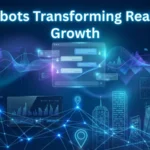Artificial Intelligence is a growing trend in every sector. Hospitality is also among the major industries that are impacted by generative AI. AI in hospitality industry is a complete package of convenience. After all, convenience is what mankind seeks through technology. According to market studies, the generative AI market in hospitality sector was valued at 16.3 billion USD in 2023. These numbers are predicted to go up to USD 439 billion by the year 2033. This means that the generative AI market in the hospitality industry will experience a 40.2% compound annual growth rate between 2023 and 2033. These numbers are a result of the increasing demand of AI implementation in the hospitality sector.
Generative AI in hospitality industry is a transformative breakthrough. It is gaining its popularity because of the increase in operational efficiency, cost savings, and better customer satisfaction. Due to the intelligent features of generative AI, the future of AI in hospitality seems promising.
Role of Generative AI in Hospitality Industry
Generative AI is a creative technology that can mimic human brain functioning and generate original content. Right from art to interactions, generative AI does it the way humans do, but faster! These features enable AI to make its prominent place in the hospitality industry. AI helps in personalization, automation, management, as well as cost-reduction in the sector. To understand specific use cases of AI in hospitality industry, let us navigate through some use cases and applications:
Front Desk Operations
An AI-powered front desk operation system can optimize check-ins, create custom greetings in multiple languages, and ensure appropriate room allotments. It can also analyze peak timings, schedules, guests’ loyalty status, past stays, and preferences to optimize and allot the right rooms, minimize wait time, and automate the entire process.
Housekeeping Management
When housekeeping activities are managed by AI, it ensures cleanliness and proper arrangements on time. By analyzing the check-out time and next check-in, it suggests staff an appropriate time to clean and prepare for other guests without disturbance. It can also help optimize room arrangements by tracking guests’ preferences and suggesting them to the staff.
Guest Services
AI analyzes and provides guests with recommendations that suit their preferences. It can also be implemented as a 24*7 chatbot or virtual assistant to guide and provide customer support in a human-like manner. Apart from these, AI can operate in multiple languages and offer real-time translations for foreign tourists to feel comfortable.
Event Planning
Event planning is an important aspect of the hospitality industry. AI, with its analytical and generative properties, provides assistance with event proposals, schedules, themes, decor, and other arrangements. All of this while ensuring affordability, functionality, client and attendees’ preferences, and optimization. AI can also be used for sending invites, personalized thank you messages, and feedback forms at the right time to gather and collect data for upcoming events.
Revenue Management
Artificial Intelligence is a smart accountant and advisor in terms of revenue management. It provides insights based on market prices, peak season, and other events to help management decide on room prices and rates. It can also be used to target different audiences in different seasons accordingly to ensure round the year footfall. Apart from this, AI AI-powered booking system analyzes and identifies cancellation patterns to suggest overbooking strategies and avoid loss due to empty rooms.
Personalized Guest Experience
From room recommendations to itineraries, dining, and entertainment options, everything can be curated with AI’s smart analysis of customer preferences. All this provides guests with a specially customized experience that leads to customer loyalty. AI can also help create a customer loyalty program with reward points or other offers per stay.
Food and Beverage Services
AI helps curate a perfect menu of food and beverages based on trends, customer preferences, and bestseller dishes. This helps stock up on required items and avoid food wastage. It also suggests seasonal delicacies and cultural delights to make a special menu. These recommendations are regularly updated with real-time data-based insights.

Pros Of AI in Hospitality Industry
There are many advantages of AI in hospitality. The major benefits include:
-
Increased Operational Efficiency
Automation and quick services of generative AI provide better efficiency than traditional systems. This also ensures substantial time-saving. Efficiency is one of the prime advantages of AI in hospitality industry.
-
Enhanced Guest Experience
Through extensive personalization and 24/7 assistance, AI provides guests with a better stay experience. Along with that, from dinner to entertainment experiences, everything is customized as per guests’ preferences. This leads to an enhanced guest experience.
-
Rise in Revenue
By saving a lot of time, food wastage, and labor costs, the ROI value increases gradually with the implementation of AI in hospitality industry. Apart from that, it also maximizes profit with strategic room booking and price suggestions.
-
Data-Driven Insights
Be it guests’ preferences or cancellation patterns, every result and insight coming from AI is purely data-based. This is a more practical approach to decision-making than random predictions and assumptions.
-
Better Security
An AI-powered security system can identify potential fraud and risky transactions before they happen. This functionality helps avoid such interactions beforehand. Apart from this, its secure surveillance and check-in system can be facilitated with face recognition features to avoid unwanted break-ins.
-
Sustainability
Energy efficiency is one of the most important advantages of AI in hospitality. At present, when sustainability is of prime importance for the tourism and hospitality sectors, AI use can help achieve green goals conveniently. By observing the energy consumption and necessities, AI can provide strategies to optimize energy consumption and reduce the carbon footprint.
Cons of AI in Hospitality Industry
There are obviously some challenges or disadvantages of AI in hospitality industry. Some of the major concerns regarding the use of AI in hospitality are:
-
Lack of Human Interaction
With the implementation of AI in several operations, guests might get tired of frequent AI interactions. Automating the entire system with AI tools may result in a lack of human touch and warmth. Warm welcomes are the essence of hospitality, and thus, the fear of AI depriving the industry of its essence is scary.
-
Data privacy and security
AI optimizes all the customizations based on guest data. The concern regarding the use and sharing of this large consumer data raises security concerns. It is important to ensure a secure system before AI implementation.
-
System Failures and Technical Issues
Too much dependency on AI tools and systems may create chaos and disruptions in times of technical issues or system failures. A good balance of manual and AI-based systems is a better-suited technique for maximum efficiency.
-
Ethical biases
AI systems behave according to the dataset available to them for training. In case of flawed or biased data, AI can also behave partially with guest preferences. Such ethical biases may impact guests’ comfort and loyalty with the brand.
-
High Implementation Costs
The initial cost of implementing AI in the workflow is quite high and may disturb the finances. This may not be a trouble for bigger brands, but it may adversely impact smaller businesses. These disadvantages of AI in hospitality may be addressed soon with continuous innovations in the technology.
-
Cybersecurity
AI is a storehouse of a large amount of data, that too of all kinds. An AI system stores guest data, staff data, performance, and revenue data for several purposes. Such data storage can be an issue in the case of cyberattacks.
Conclusion
The future of AI in hospitality is strengthened by its varied applications and attractive benefits. Implementation of generative AI in your current work system may face some obvious challenges, but it promises long-term benefits. With increased efficiency, reduction in costs, energy efficiency, and labor optimizations, AI tools guarantee substantial growth in ROI. Get in touch with a genuine generative AI service company to understand how AI can benefit your business. Before the implementation of AI in hospitality industry, go through all the benefits and challenges to be well-prepared. Make a plan and book a consultation with AnavClouds Analytics.ai soon to ensure a timely response and expert services. Make your business future-ready with useful AI tools and analytical solutions by AnavClouds Analytics.ai.
FAQs
How is AI being used in the hospitality sector?
AI is being used in the hospitality sector to provide customers with a customized experience, initiate contactless check-ins, increase operational efficiency, and revenue while decreasing costs.
What is the fundamental concept of AI?
The fundamental concept of AI is to create machines capable of performing tasks that generally require human intelligence, like learning, reasoning, creating original art, problem solving, and understanding natural language.
What are the advantages of AI in hospitality industry?
AI enables the hospitality industry to reduce its food and energy wastage through analysis, reduces labor costs, and increases efficiency by automating front desk operations. These are the major advantages of AI in hospitality industry.
What are the negative effects of AI on hospitality industry?
The total implementation of AI can be initially very costly for small businesses. AI can store large guest data, which may attract cyber attacks, raising security concerns. Apart from the obvious technical issues and security, the lack of human touch and warmth is also a disadvantage of AI in hospitality.
How can AI contribute to sustainability in hospitality sector?
AI surveillance and AI-powered devices can observe and analyze energy consumption. AI can help curate a strategy to ensure optimal energy consumption and minimize the carbon footprint. Thereby, contributing to sustainability in hospitality sector.



